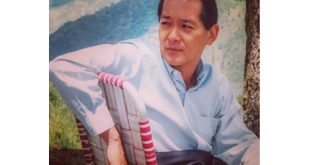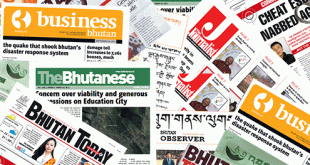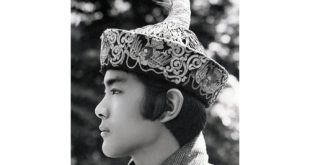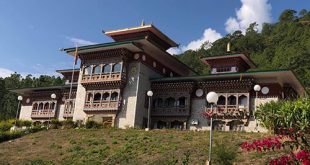By Monideepa Banerjie
Wedged between the giants of China and India, Bhutan has long walked a diplomatic tightrope to preserve its peace. One of its gravest tests came in the 2003, when armed Indian separatists in years past had slipped across the border and built camps along its 669-kilometre frontier. Their intrusion jeopardised Bhutan’s friendship with its closest ally, India, concerned that its neighbour had, willy-nilly, become a haven for anti-national elements.
In December 2003, King Jigme Singye Wangchuck took a historic step. His Majesty ordered and led the Royal Bhutan Army (RBA) to carry out the kingdom’s first military strike in 140 years. The operation- as resolute as its name, Operation All Clear– flushed the Indian militants out of Bhutanese soil.
Indians living in Assam and West Bengal bordering Bhutan had suffered for years at the hands of the militants, terrorised by bomb blasts, gun fights, extortion, abductions and murders almost every other day. The Indian Army had cracked down with Operation Rhino and Operation Bajrang in the early 1990s. Many were killed but large numbers fled to Bhutan and continued to conduct hit and run operations too often for normalcy to return.
For Indian journalists covering the eastern part of the country, the first signs that something was afoot came when people living in the districts bordering Bhutan reported a sharp increase in Indian troop movement on the ground in the Indian side and Army helicopters flying the skies about a week into December.
At that time, I was based in Kolkata as executive editor east for India’s premier TV news organisation NDTV. I got confirmation of the impending action in Bhutan by the RBA from Indian army sources who described ariel views of sprawling clumps of bright blue plastic sheets used to rainproof militant camps in Bhutan’s forests. The ULFA military chief Paresh Baruah was not in Bhutan. From his hideout, he would often call journalists, including me, to claim operational successes. He never suggested he had prior knowledge about Operation All Clear.
Then came the dramatic December 15 press release from the foreign ministry of Bhutan, painting a grim but clear picture of the task the Kingdom was about to undertake. Over the years, the United Liberation Front of Assam (ULFA), the National Democratic Front of Bodoland (NDFB), also operating in Assam, and the Kamtapuri Liberation Front (KLO) active in North Bengal had set up as many as 30 camps in the forests, most of them in four Bhutan districts: Samdrup Jongkhar, Sarpang, Zhemgang and Samtse. The ULFA had the biggest presence with 13 camps and a command centre at Samdrup Jonkhar. All the camps were to be flushed out by the RBA, led, in person, by King Jigme Singye Wangchuck.
Information flow to the media was miserly, both from the Bhutan and India during the operation from December 15 to January 3. Even after, confirmations were thin on the ground. As far as I recall, there never was an official toll shared by either government. But, by all accounts, 160 militants were killed, about 500 surrendered and the RBA also suffered some losses (11).
The result of the absence of information was some dreadful errors in media reports, most famously, the “death and resurrection” of a senior ULFA commander, B. Burgohain, who was first reported killed in action. That the authorities were not handing over his body to his family spurred widespread protests in Assam. Then came reports that his body was secretly flown to a place in Assam and cremated. Only much later, he was reported – this time accurately, finally — to be in Army custody. He is currently living in Assam, according to last reports.
The Indian Army involvement was on troops patrolling the borders on foot and by boat to arrest fleeing militants and Army helicopters helping to airlift the injured and other evacuees.
Much after Operation All Clear, one learnt that before launching the operation, King Jigme Singye Wangchuck had visited the sacred Punakha Dzong that houses sacred relics and the holy remains of Zhabdrung Ngawang Namgyel and holds great significance for the Buddhist people of Bhutan. The visit was a balm for the Bhutanese people who had not been to war in recent history. It also earned the King the title of the Warrior Buddhist.
Testimony to the success of the Operation All Clear he led, it ensured there was never the need for an encore.
The writer was Executive Editor East for India’s premier TV news organisation NDTV and is currently an Author at The Print
 The Bhutanese Leading the way.
The Bhutanese Leading the way.




